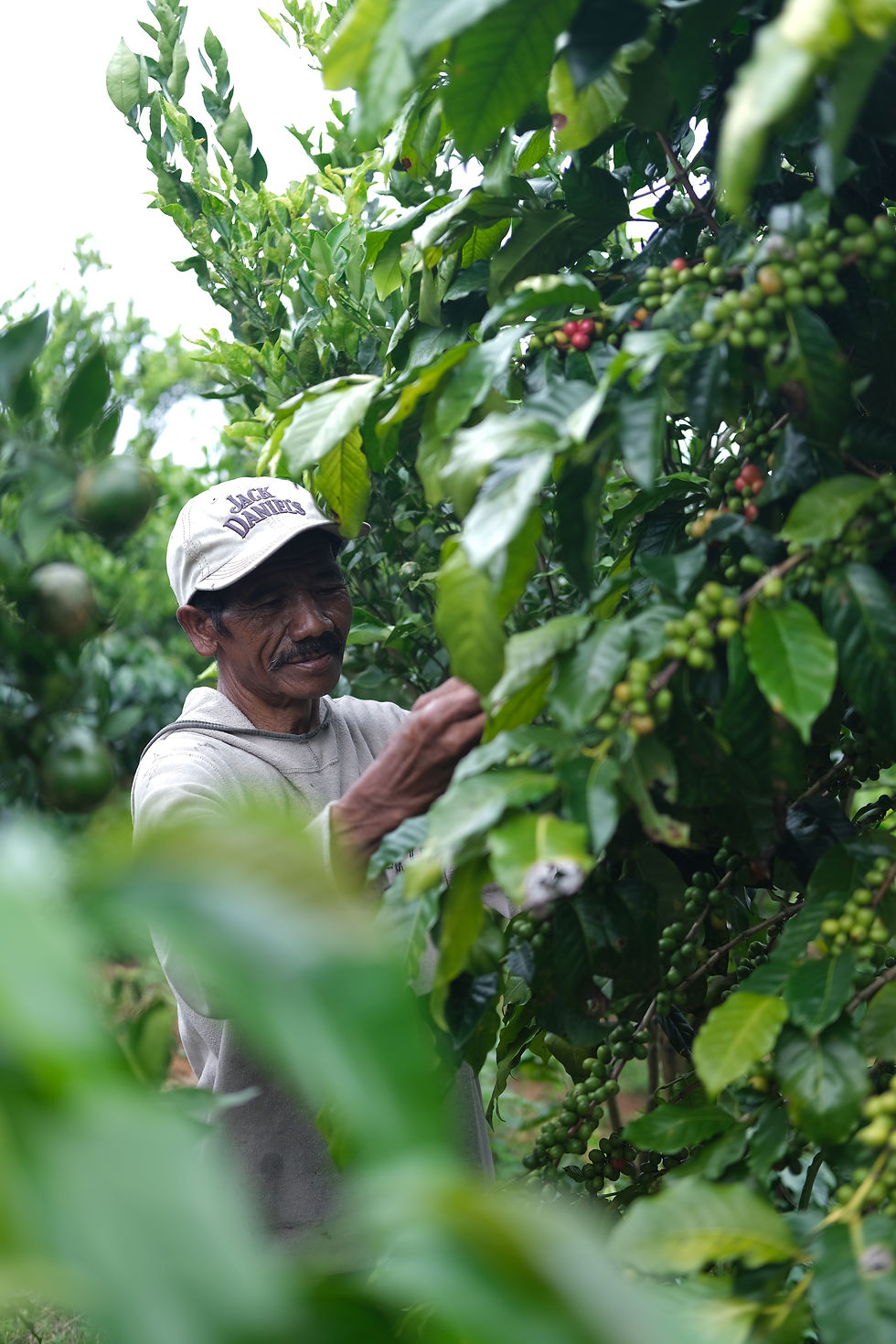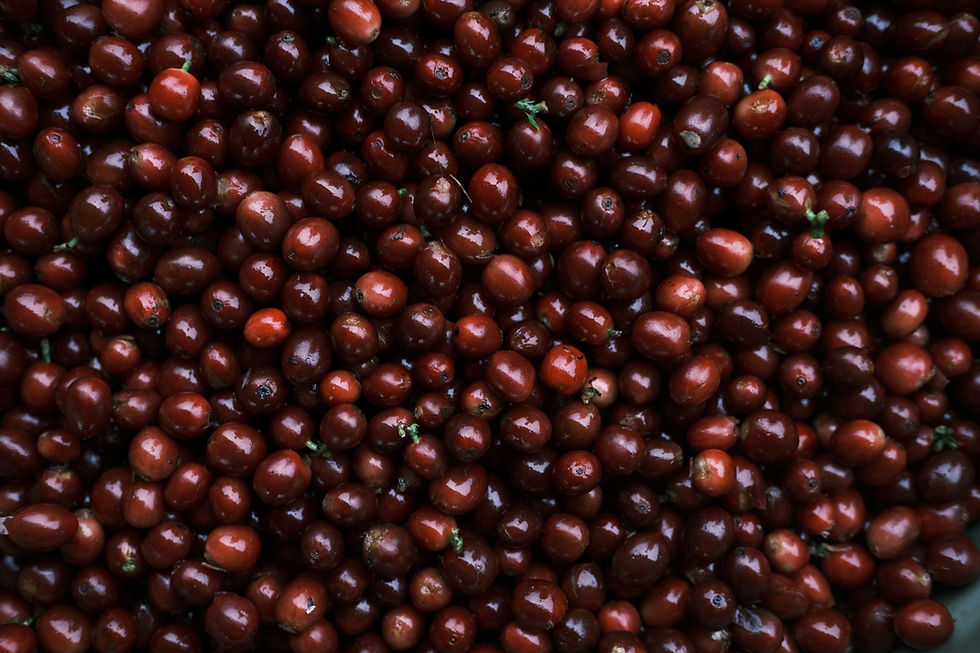
BALI
Bali may be known for its beaches and temples, but it's also home to a unique and growing coffee heritage. Coffee has been cultivated on the island since the early 20th century, primarily by smallholder producers who practice traditional, community-based farming systems like subak abian—a cooperative approach rooted in Balinese Hindu philosophy.
Thanks to its volcanic soils, highland microclimates, and clean water sources, Bali produces coffees that are typically well-balanced, clean, and mild, with gentle acidity and sweet, spice-like notes. While the island is best known for its Arabica from Kintamani, Bali also grows high-quality Robusta in lower elevation areas like Pupuan, adding diversity to its coffee landscape.
Heritage-rich, Community driven


Main Growing Region
Arabica - Kintamani
Our Arabica mostly comes from Kintamani, a highland region known for its volcanic soil and clean, fruit-forward cup profiles shaped by its altitude.
_JPG.jpg)
Robusta - Pupuan
Our Robusta comes from Pupuan, a fertile lowland area, with rich soil, an ideal growing conditions for coffee, with a character of smooth body and low acidity.

Located in the heart of Bali, our integrated processing facility is the backbone of BTM Coffee — combining a wet mill, dry mill, greenhouses, drying room, warehouse, and quality control lab under one roof. We source and sort cherries from local farmers into traceable lots, process them using best-fit wet milling methods, then dry and rest the beans in our controlled drying room and warehouse. Our QC team prepares and sends samples worldwide, while the dry mill handles hulling, grading, and export prep. Finished lots are shipped in jute bags, ready for roasters across the globe — from our hands to yours.
Our Processing Facility - the Heart of BTM Coffee
.jpg)
Contact Us for
Coffee Inquiries
_JPG.jpg)
